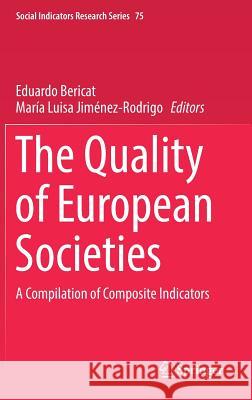The Quality of European Societies: A Compilation of Composite Indicators » książka
topmenu
The Quality of European Societies: A Compilation of Composite Indicators
ISBN-13: 9783030050221 / Angielski / Twarda / 2019 / 334 str.
Kategorie:
Kategorie BISAC:
Wydawca:
Springer
Seria wydawnicza:
Język:
Angielski
ISBN-13:
9783030050221
Rok wydania:
2019
Wydanie:
2019
Ilość stron:
334
Waga:
0.67 kg
Wymiary:
23.39 x 15.6 x 2.06
Oprawa:
Twarda
Wolumenów:
01
Dodatkowe informacje:
Wydanie ilustrowane











